For all the parables in Matthew 13, Yahoshua is telling us what the Kingdom of God /Kingdom 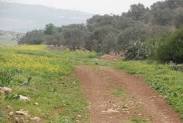 of Heaven is like. In the Parable of the Sower, Yahoshua likens the kingdom of heaven to a seeds planted on four different grounds. His interpretation of the parable, highlighted the word of the kingdom (seed) planted in good soil (the heart of the true believer), in which the seed takes root, thrived and produced much fruit.
of Heaven is like. In the Parable of the Sower, Yahoshua likens the kingdom of heaven to a seeds planted on four different grounds. His interpretation of the parable, highlighted the word of the kingdom (seed) planted in good soil (the heart of the true believer), in which the seed takes root, thrived and produced much fruit.
In the Parable of the Tares and Wheat, Yahoshua differentiates between the children of light and the children of darkness. The children of light are the children of the kingdom. They are the seeds Yahoshua planted. They have the word of the kingdom rooted in good soil. The 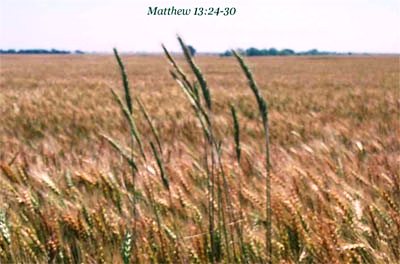 children of darkness are the children of Satan. They are the seeds Satan planted. The children of darkness are the children of the devil who infiltrate the assembly of the children of the kingdom to introduce unrighteousness, false teachings and false prophecy that are offensive to Torah, corrupt the gospel of the kingdom, and to practice iniquity. Yahoshua also revealed that at the end of the world, He will identify the children of darkness who are in the midst of the children of light, and He will be the judge to tell his angels to sentence the children of darkness to the fiery furnace; while the destiny of the children of the kingdom, will be the kingdom of Yahovah where they will shine like the light of the sun.
children of darkness are the children of Satan. They are the seeds Satan planted. The children of darkness are the children of the devil who infiltrate the assembly of the children of the kingdom to introduce unrighteousness, false teachings and false prophecy that are offensive to Torah, corrupt the gospel of the kingdom, and to practice iniquity. Yahoshua also revealed that at the end of the world, He will identify the children of darkness who are in the midst of the children of light, and He will be the judge to tell his angels to sentence the children of darkness to the fiery furnace; while the destiny of the children of the kingdom, will be the kingdom of Yahovah where they will shine like the light of the sun.
In the Parable of the Mustard seed Yahoshua likens the kingdom of heaven unto a “grain of mustard seed, which a man took, and sowed in his field: 32 Which indeed is the least of all seeds: but when it is grown, it is the greatest among herbs, and becomes a tree, so that the birds of the air come and lodge in the branches thereof.”
In our last episode we highlighted the potent healing benefits of the mustard seed and the mustard tree. We concluded that the parable had something to do with the potency of their  healing benefits compared to mission of the Messiah, Yahoshua. We applied to this parable, the previous definitions of the same words Yahoshua used in the previous parables. Thus, the field represented the nations of the world; the man who planted the seed we figured was Yahoshua or His disciples; the mustard seed being a potent seed, encompasses the word; in addition to other spiritual benefits. So, the meaning of the parable is deeper than what we see from the other parables.In this parable, we will examine the phrases for an in depth study of the meaning of the parable.
healing benefits compared to mission of the Messiah, Yahoshua. We applied to this parable, the previous definitions of the same words Yahoshua used in the previous parables. Thus, the field represented the nations of the world; the man who planted the seed we figured was Yahoshua or His disciples; the mustard seed being a potent seed, encompasses the word; in addition to other spiritual benefits. So, the meaning of the parable is deeper than what we see from the other parables.In this parable, we will examine the phrases for an in depth study of the meaning of the parable.
“A grain of mustard seed:”
There are many layers to the meanings attached to the specificity of the “mustard seed”. In fact, a closer look at the messianic prophesies reveal that Yahoshua was talking about himself and His inheritance according to those prophecies. Let’s take a look:
Seed is interpreted by Yahoshua to be the word of the kingdom or the gospel of the kingdom, which Yahoshua preached. Also, the life of the plant is in its seed. The mustard seed is a specific seed, not just the usual seed. This seed, and even the leaves of the tree are potent in healing properties. In comparison, as the life is in the embryo of the seed, so we have our life in Christ. He is the embodiment of the word of the kingdom. In John 1:4 the apostle John, speaking about Yahoshua, tells us: “In Him was life, and the life was the light of men.”
Yahoshua performed healing miracles, which was a sign that confirmed He is the Messiah. He read the messianic prophecy on the scroll from Isaiah 61:1-2a saying, “The Spirit of the Lord is upon me, because He has anointed me to preach the gospel to the poor; He has sent me to heal the brokenhearted, to proclaim liberty to the captives and recovery of sight to the blind, to set at liberty those who are oppressed; 19 To proclaim the acceptable year of the Lord. 20 And he rolled up the scroll and gave it back to the attendant and sat down. And the eyes of all in the synagogue were fixed on him. 21 And he began to say to them, “Today this Scripture has been fulfilled in your hearing.” (Luke 4:18-19).
Healing was a sign that was prophesied that the messiah would do when He came; therefore, John the Baptist, while he was sitting in prison, wanted to know if he had fulfilled his purpose as Forerunner of the Messiah; otherwise, he would have to continue with his ministry once he was released from prison. So, he sent Yahoshua a question: “2Now when John had heard in the prison the works of Christ, he sent two of his disciples, 3 And said unto him, Art thou he that should come, or do we look for another? 4 Jesus answered and said unto them, Go and shew John again those things which ye do hear and see: 5 The blind receive their sight, and the lame walk, the lepers are cleansed, and the deaf hear, the dead are raised up, and the poor have the gospel preached to them. 6 And blessed is he, whosoever shall not be offended in me.” (Matthew 11:2-6).
Isaiah prophesied the messianic prophecy, But He was wounded for our transgressions, He was bruised for our iniquities; The chastisement for our peace was upon Him, And by His stripes we are healed.” (Isaiah 53:4-5)
which is the least of all seeds:
The parable describes the size of the mustard seed as “the least of all seeds” depicting the small beginning of the very large mustard tree. The description, “least of all seeds” matches the messianic prophecy from the prophet Micah saying in Micah 5:2, “But as for you, Bethlehem Ephrathah, Too little to be among the clans of Judah, From you One will go forth for Me to be ruler in Israel. His goings forth are from long ago, From the days of eternity.” This prophecy was telling where the messiah would be born. Though his parents moved around, He was born in Bethlehem, which was considered to be too little to be even counted among the clans of Judah.
Another incident where Yahoshua was deemed insignificant was in the Nazareth, the town where he was living. On the Sabbath when he read from the scroll of Isaiah, the people in the synagogue liked what he had to say and thought he was very wise but Yahoshua remarked that he could not do any great miracles in that town. In Luke 4:22-24 we read, “22 So all bore witness to Him, and marveled at the gracious words which proceeded out of His mouth. And they said, “Is this not Joseph’s son?” 23 He said to them, “You will surely say this proverb to me, ‘Physician, heal yourself! Whatever we have heard done in Capernaum,do also here in Your country.’” 24 Then He said, “Assuredly, I say to you, no prophet is accepted in his own country.”They marginalized his worth by not accepting Him for who He was, but by saying he was Joseph’s son, they were saying he is from a family of lowliness, because he is just the son of a carpenter, one of low esteem. Finally, the whole chapter of Isaiah 53 describes him as a suffering servant of no esteem. The first three verses read, “Who has believed our report? And to whom has the arm of the Lord been revealed? 2 For He shall grow up before Him as a tender plant, And as a root out of dry ground. He has no form or comeliness; And when we see Him, There is no beauty that we should desire Him. 3 He is despised and rejected by men, A Man of sorrows and acquainted with grief. And we hid, as it were, our faces from Him; He was despised, and we did not esteem Him.”(Isaiah 53:1-3)
“but when it is grown, it is the greatest among herbs, and becomes a tree”:
In this three part phrase, Yahoshua is delivering an in depth message in each part. Let us look at each part individually:
“but when it is grown”, “and becomes a tree”
The Jewish Encyclopedia, website at http://www.jewishencyclopedia.com/articles/7689-high-priest states, that according to Rabbinical tradition, the age of eligibility for the office of priest can be found in 2 Chronicles 31:17, which states, “The enrollment of the priests was according to their fathers’ houses; that of the Levites from twenty years old and upward was according to their offices, by their divisions.” Yahoshua was close to age 30, when he began His public ministry, qualifying Him as grown and mature for entering the priesthood, considering that the age to enter the priesthood is 20. Therefore by the time of His ascension to heaven to serve as our High Priest, He was grown as an adult and mature in age and in Spirit, meeting the qualifying age for the role of the High Priest.
In the Psalm 110:4 King David, in his Messianic prophecy said, “The Lord has sworn, and will not change his mind, “You are a priest forever after the order of Melchizedek.” The writer of Hebrews speaking of the Messiah said, “For it is witnessed of him, “You are a priest forever, after the order of Melchizedek.” (Hebrews 7:17). We read again in Hebrews 5:5-10 we read, “5 So also Christ did not exalt himself to be made a high priest, but was appointed by him who said to him, You are my Son, today I have begotten you; 6 as he says also in another place, “You are a priest forever, after the order of Melchizedek.” 7 In the days of his flesh, Jesus offered up prayers and supplications, with loud cries and tears, to him who was able to save him from death, and he was heard because of his reverence. 8 Although he was a son, he learned obedience through what he suffered. 9 And being made perfect, he became the source of eternal salvation to all who obey him, 10 being designated by God a high priest after the order of Melchizedek.”
Thus, Yahoshua (the mustard seed) satisfied the phrases, “but when it is grown “in the above scripture references. Yahoshua is the spiritual seed from which all the children of the kingdom will be born again (receive their spiritual birth).
“And becomes a tree”, “The birds of the air come and lodge in the branches thereof”
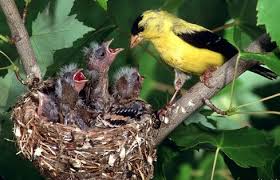 As a grown tree, the fruitfulness of Yahoshua is seen through His disciples. The branches of the tree represent the children of the kingdom because Yahoshua told us in John 15:5 saying, “I am the vine, you are the branches. He who abides in Me, and I in him, bears much fruit; for without Me you can do nothing.” We saw in the parable of the sower, that the birds of the air represent the evil one or the agent of darkness. The large grown tree is a depiction of the growing ministry of Yahoshua and the size and strength of His followers in the world. Therefore, the birds of the air that come and lodge (or make their nests in the branches) represent Satan persecuting the believers in Yahoshua. As the body of believers grow and become spiritually mature in understanding and application of the word of the kingdom, “the birds of the air” the agents of Satan or the children of darkness, take up positions among the assembly of believers for the purposes of deceiving the body through false teachings, false prophecy, practices of iniquity; and to persecute the believers.
As a grown tree, the fruitfulness of Yahoshua is seen through His disciples. The branches of the tree represent the children of the kingdom because Yahoshua told us in John 15:5 saying, “I am the vine, you are the branches. He who abides in Me, and I in him, bears much fruit; for without Me you can do nothing.” We saw in the parable of the sower, that the birds of the air represent the evil one or the agent of darkness. The large grown tree is a depiction of the growing ministry of Yahoshua and the size and strength of His followers in the world. Therefore, the birds of the air that come and lodge (or make their nests in the branches) represent Satan persecuting the believers in Yahoshua. As the body of believers grow and become spiritually mature in understanding and application of the word of the kingdom, “the birds of the air” the agents of Satan or the children of darkness, take up positions among the assembly of believers for the purposes of deceiving the body through false teachings, false prophecy, practices of iniquity; and to persecute the believers.
“It is the greatest among herbs”
The mustard tree being “the greatest among herbs” in comparison to other herbs, matches the messianic prophecy of the prophet Micah in Micah 5:2, “One will go forth for me to be ruler in Israel”. Thus, Yahoshua is speaking of the coming highly esteemed position He will have when He returns as Messiah to sit on the throne of David as “ruler of Israel”– “greatest among herbs”.
The fruit of His labor, as the good shepherd, continued to grow with an increasing number of disciples that continued to grow throughout the 70 weeks of His ministry. This number of followers then skyrocketed after His resurrection, with a mass event on the Day of Pentecost with His outpouring of the Holy Spirit. When His flock expanded on the day of Pentecost showing the exponential fruitfulness of His ministry, as the word of the gospel of the kingdom was preached, to the people who gathered there, representing many nations of the world. These new converts who became disciples for Yahoshua, and take the gospel back to their own towns, in their own language, as they mature in the spirit and understanding of the word, and become fruitful, growing the world assembly into a very large body. This was prophesied by King David that Yahovah would say to His Son, in Psalm 2:8 which says, “Ask of me, and I shall give thee the nations for thine inheritance, and the uttermost parts of the earth for thy possession.”
In the process of the true believer becoming spiritually mature, there are tests, trials, tribulations and persecutions that come to test their faith and love of the word of the kingdom. In the Olivet Discourse in Yahoshua prophesied about the growth and spreading of the gospel of the kingdom, before the end of the world comes. “And this gospel of the kingdom shall be preached in all the world for a witness unto all nations; and then shall the end come.” ( Matthew 24:14)
Parable of the Leaven
33 He told them another parable. “The kingdom of heaven is like leaven that a woman took 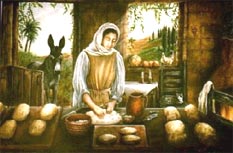 and hid in three measures of meal, till it was all leavened.”
and hid in three measures of meal, till it was all leavened.”
Leaven is used in a negative connotation in the Bible to represent sin, unrighteousness, false teachings, false prophecy and iniquity. Yahoshua said beware of the leaven of the scribes and Pharisees. He also said beware of the leaven of Herod. Torah commands us in Exodus 12:21 in preparation for the Feast of Unleavened Bread, to remove all leaven from our homes and the city. And we are commanded in Leviticus 23:6 to not eat any foods with leaven in it.
In the book of revelation, the woman is represented as the harlot and the daughters of the harlot. The woman had control of the flower in which she hid the leaven. The peculiar thing about the flour is that she hid it in three measures of flour. Unless she is preparing for a large feast of many people, three measures of flour is equivalent to three gallons of flour in dry measure. So this was a large amount of flour. The word “hid” led me to believe that the act of hiding the leaven was a deceptive act on her part. Therefore, I believe Yahoshua is prophesying about the experience that the future of the body of believers would experience. I believe they experienced this event when the Roman Emperor Constantine introduced polytheistic celebrations of Mithraism, Saturnalia and Winter Solstice in order to Christianize these pagan celebrations. Since then this polluted version of Christianity and has not spread the message of the gospel of the kingdom for the past 1100 years, producing blind guides to lead the blind.
In the parable of the Wheat and the Tares the children of the kingdom were the wheat. Therefore it is reasonable to believe that the flour represents the children of the kingdom since flour is made from wheat.
Yeast is the likely catalyst used for leavening in this reaction process for the flour. However, the yeast itself is not used up or destroyed in the process. Instead, it multiplies in the process and the leavened dough that is generated from the process, has within it, millions more live yeast cells than it had at the start of the process. By using a small piece of the leavened dough with active live yeast, you can start the leavening process in another batch of dough. This second batch of leavened dough will have the same properties as the source dough.
Today, Fundamental Christianity has disowned its Hebrew roots and adopted a Roman – Greek version of Christianity which is corrupted with paganism. Roman Catholicism and Protestant Christianity both teach a different gospel from the one Yahoshua preached. Yahoshua commented that, “The kingdom of God suffers violence and the violent takes it by force”. (Matthew 11:14). Based on the material from Revelation and the Olivet Discourse, this trend has continued and will continue to worsen.
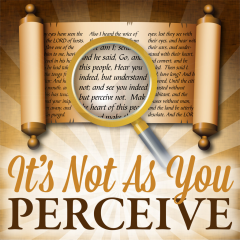
Recent Comments